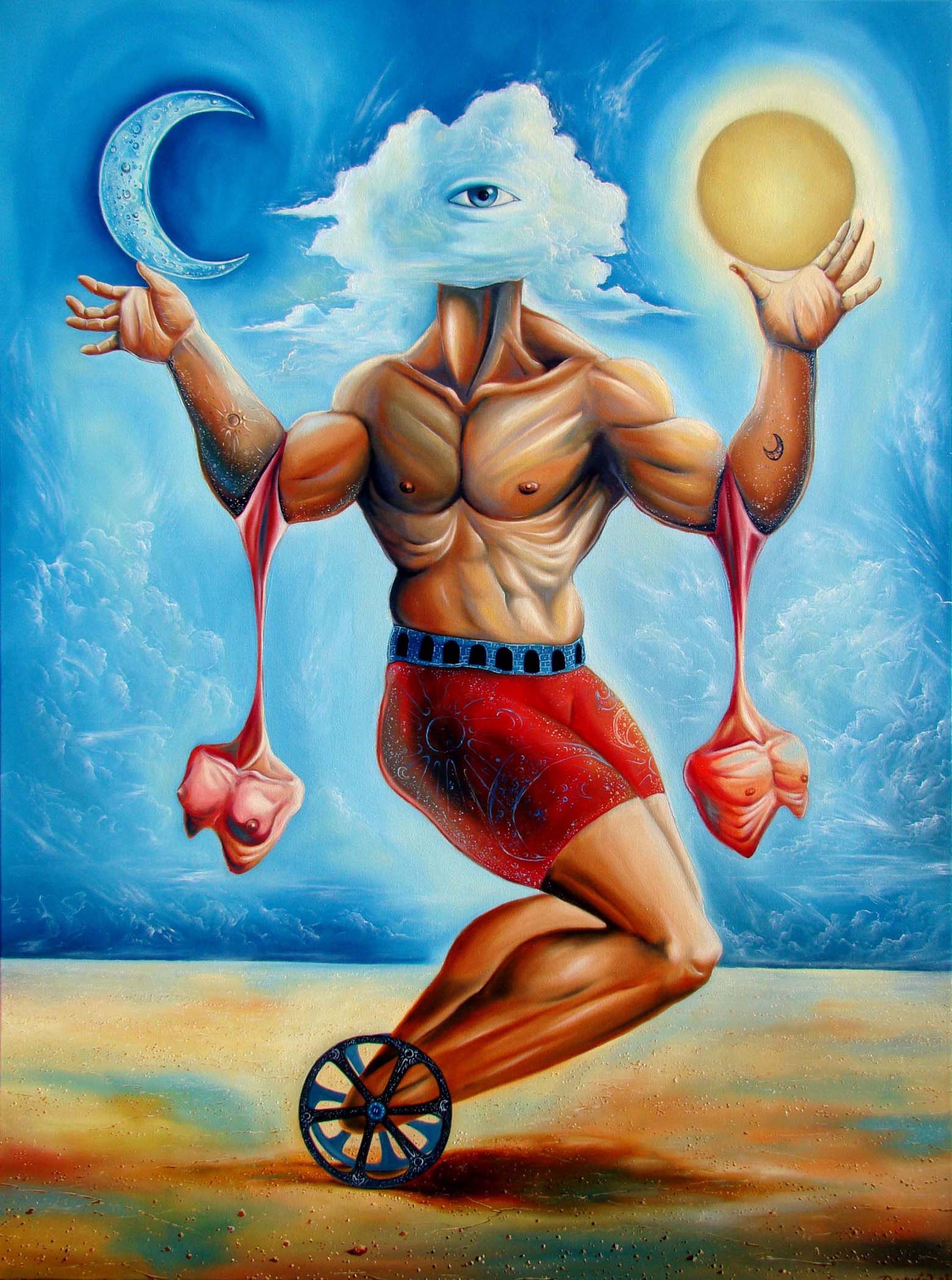
Israel Allen: First let’s talk about your Shorts On Survival piece Ontario, California. There are a lot of places that the journey in this piece could be going and a lot of places it could end. Why Ontario, California?
Kurt Mueller: I’m a midwesterner, and California has always seemed exotic. It feels like it’s a different world, and this story is really about leaving a world behind for a new one, and of all the places I know of in California, Ontario sounds the most exotic and foreign; although Ontario, Canada is probably more like Illinois or Wisconsin than Ontario, California is, just the word Ontario conjures up the idea of another country to me.
IA: The image of the photographs taped onto the inside of the vehicle is striking and strange (in a very good way). What was the genesis of that choice?
KM: The story, to me at least, is as much about leaving things behind as it is about going someplace new. In order for the narrator to let go, he has to take an inventory of what he’s leaving behind. When we get to the end of the story he has physically thrown his family out the window, and all the pictures prior to that build up to him dismissing his past life with that action. I’ve done some study of drama and playwriting, and on a stage a person’s internal world needs to be visible to the audience, and that’s sort of what I’m going for here: show the world what this guy is thinking and make him do something physical. It puts his history in his face, and it forces him to confront it with an action. Of course he could have remembered these incidents without the photographs, but that’s not this guy. He’s leaving, but struggling, and these photos show that.
IA: The objects the narrator describes seem to be more complex as the story evolves—the seeds, the insects, the raccoon, the family. I know that’s not a question; I’m just curious about the development of that progression.
KM: That progression goes along with the psychic progression within the narrator. Here’s a guy who’s low on sleep, and he goes from focusing so much on what’s around him to what’s going on inside him, and as the descriptions of what’s happening outside the car become more complex, I think those descriptions are more about the narrator than the world around him. He is struggling with disease and worried about dying and just so far within himself, that by the end, his thoughts are going pretty wild.

IA: This narrator, in the midst of a serious life event, is still vain enough to worry about his appearance, to worry about picking up girls. How important do you think libido is to the male psyche? Do you think literary fiction pays enough attention to that element of its characters?
KM: The libido is incredibly important to the male psyche, and it’s something that, you’re right, is often overlooked in literary fiction. For this guy, I think it’s a sign that his body is still working. Testosterone is still flowing, and if it came to it, no matter how decimated he may think he is, he would still try to get laid. He is, after all, a man, and whether it’s literary or not, men spend time and energy trying to get laid.
IA: Obviously, this narrator has been shaped by his childhood in a way that resonates as his journey progresses. How did your own childhood shape the way you tell stories?
KM: I imagine every writer could (and plenty have tried to) write a book on that. My childhood was good, and it lacked any major trauma, but I was then (and am now) big into popular culture. My writing is full of references and allusions to music, literature, art and film, probably because when I was a kid we watched lots of movies, I read lots of books, we went to museums, etc. My father did force me to read the Odyssey when I was really young and write a report on it, and it seems like most of my writing is in some way a road story about disconnecting or reconnecting with family, so maybe there’s something there.
IA: We’re both grads of the Southern Illinois University MFA program. How did that experience impact your work?
KM: It definitely made me better, I think. I would say the experience of working with different people in different genres was the best part it. The SIU grad program forces students to take classes outside of their genre, so while I studied fiction, I took a year of grad playwriting with students from the theater department, and I learned a ton about storytelling from that. Working with poets gave me a better idea of how to explore imagery and emotions. In addition to just getting three years to write and workshop, the idea of becoming better at writing fiction by exploring other genres and writing styles blew my mind. Also, all the faculty are great. It’s a fantastic place and program that should be at the top of anyone’s list of best MFA programs.
IA: What do you say to your current students who are interested in pursuing an MFA?
KM: Don’t. Really, though, I tell them what I was told by one of my favorite professors from my undergraduate days (David Wright – great writer and great man): Wait. Take at least a year and do something (in my case, I lived with my parents and made coffee and volunteered at a children’s museum), then see if you still want to go to MFA school, and if so, go work with people you haven’t worked with before at a new school. I think the perspective gained in a year or two outside of school can really help a young person when approaching graduate school.
IA: How would you define “recovery” and what does that mean for your fiction?
KM: I think recovery is the act of making progress, of coming back from something tough, of overcoming, and I think that it means a lot to my fiction. It’s in everything. I look at the list of short stories I’ve published, and they’re all about people recovering from some trauma, whether it be physical or psychological. I look at the novel I’ve just finished, and it’s about an entire family recovering. Recovery is one of the most universal themes, and it’s one I’m constantly exploring and will continue to explore for the rest of my career.
Israel Allen teaches English at Lander University. He is the author of two novels, Anachronistic in Asheville and Homecoming King, and two plays, Ask Me Anything and Stitches.
